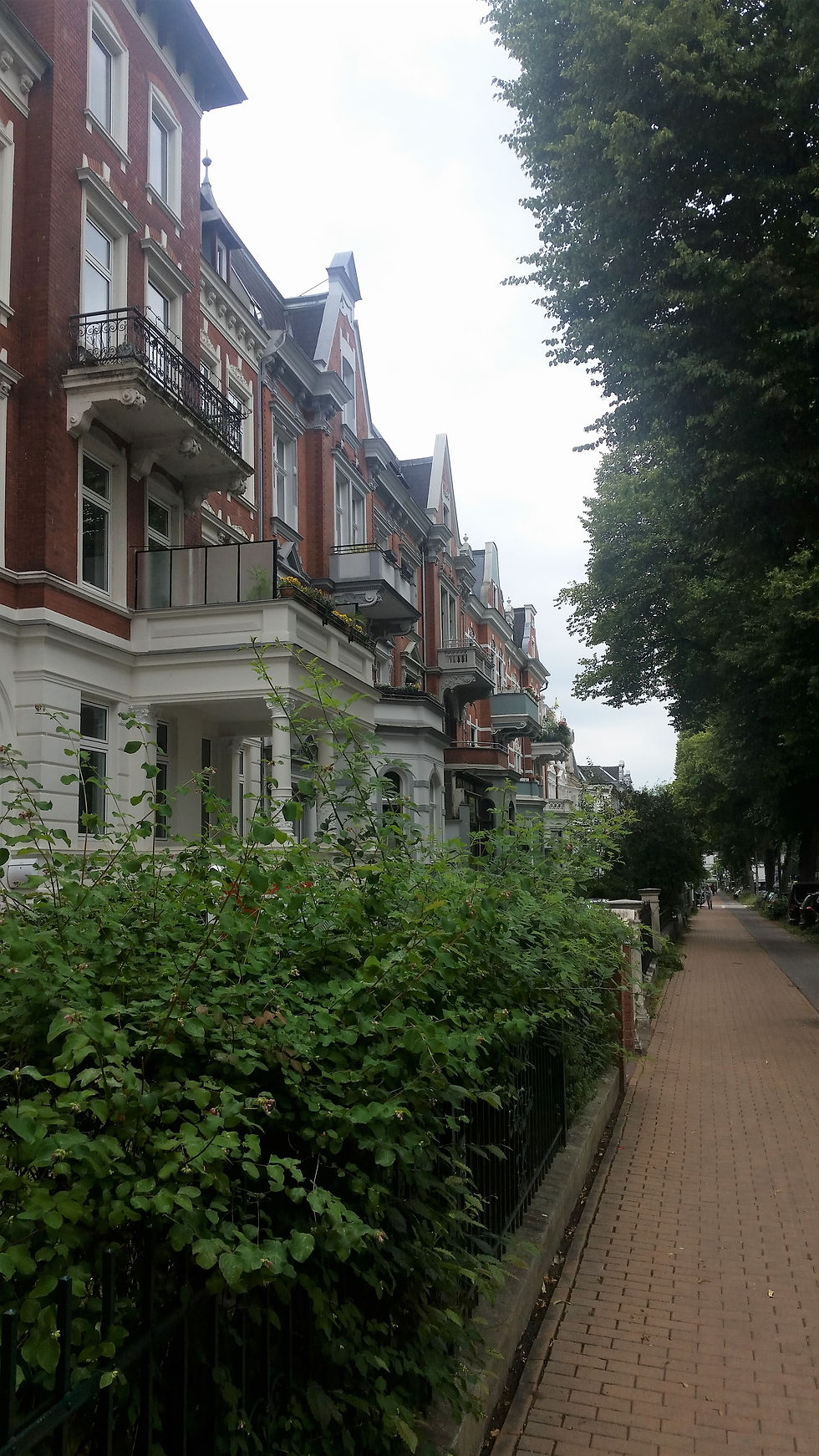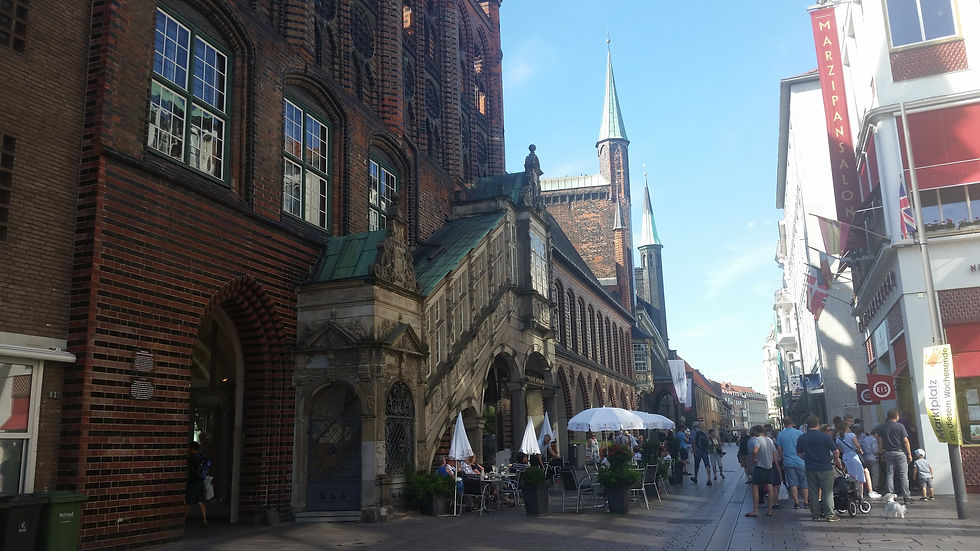A Bird's Eye View
- fourthquarter
- Jul 11, 2018
- 4 min read
Updated: Aug 1, 2018
Marco Mora-Mendoza
July 11, 2018
Four weeks ago, I landed in Germany.
After an incredible time abroad in Florence and an unexpected change of plans, I found myself setting foot on Europe's so-called economic powerhouse full of curiosity, expectation and a small hint of homesickness.
Having declared Computer Science as a major just a couple of months ago, today I am figuring out what doing research in the field at a university entails. And as I've always thought that robots were cool and have lots of potential, I decided that a project in Germany, a country famous for its robotics industry, would be quite an experience. With my cover as a university student and the name of Stanford as a golden credential, I might even be able to get to know people from big companies such as Volkswagen and those smaller ones dealing in the growing startup scene. Luckily, a robotics research group at the University of Lübeck welcomed me to stay.

Lübeck is a small city north of Hamburg, about four hours away from Berlin by train. With an old population and its serene lake scenes, it is more of a contemplative town than a dynamic urban center, but after an adventure-filled quarter abroad in which I spent all my travel budget that might be just what I need.
After a three-month long hiatus from CS I dove right in and was abruptly reminded of how frustrating coding can be. Spending 8 hours a day trying to find problems in a virtual simulator is not necessarily fun, but it's a learning experience. Messing up and deleting critical files and having to start a day's worth of work from scratch is definitely not fun, but it's a learning experience. The tangible, real-world applications of my work have been fueling my motivation, a welcome contrast to the theoretical focus of the curriculum back home.
Our project focuses on swarm robotics. Much like schools of fish or colonies of ants, several research groups have started to program robots to simulate this kind of behavior. The problem is that most of these "swarms" are small - only a dozen or so units. Robots are simply too expensive to build. That is until a research group at Harvard designed the Kilobot, a cheap, simple, coin-sized alternative. Suddenly, labs around the world could experiment with swarm robotics using hundreds, if not thousands of Kilobots.
Specifically, my group's work falls under the umbrella of the EU's flora robotica project, an initiative "to develop and investigate closely linked symbiotic relationships between robots and natural plants and to explore the potentials of a plant-robot society able to produce architectural artifacts and living spaces." We are trying to simulate how plants form, grow and distribute resources, all with the use of Kilobots. My job is to fix the problems of the algorithm we are using to run virtual experiments with thousands of robots, looking for bugs hidden within thousands of lines of code.

But apart from the practical experience and all the other things that I am learning, what I value the most from being here is being alone, far away from everything. Instead of spending my time traveling to more exotic places or checking things off my bucket list, I've been using my time to think, read and complete some German bureaucratic paperwork.
This experience is different than my past quarter abroad. Although I am sharing an apartment with two hospitable grad students, this will be the first time I will be living alone, without either my family taking care of me or the protective arm that Stanford loves to surround its students with. Here, I am alone, far away from my friends, family and acquaintances; far from their expectations, demands and desires to hang out, but also far from their presence, love and attention. I am far away from America, with its own set of problems that are becoming more turbulent each day, but also far from the only place that I have come to realize feels like home. The feeling is bittersweet.
But it is a necessary passage. Moving away from everything has let me put my life into perspective. Whereas in the midst of the school year I had to deal with the problems in front of me, here I have gained a bird's-eye view of my life. And as I moved away I realized that I was getting closer to discovering what I think is important, and how my life should look like in terms of career, relationships and values.
I will take this time to meditate, to think hard about the problems that matter to me, to read in an effort to better understand the world and to recharge from the two long years I've spent grinding at Stanford. Only time will tell if this experience was worth it, but I have a feeling that it definitely will be. And as the Junior year approaches I hope that by the time summer is over I will have a better understanding of the world and of myself, and a renewed spirit for continuing my education in the fall.

Bis später (probably the only two words of German I know),
Marco







Comments